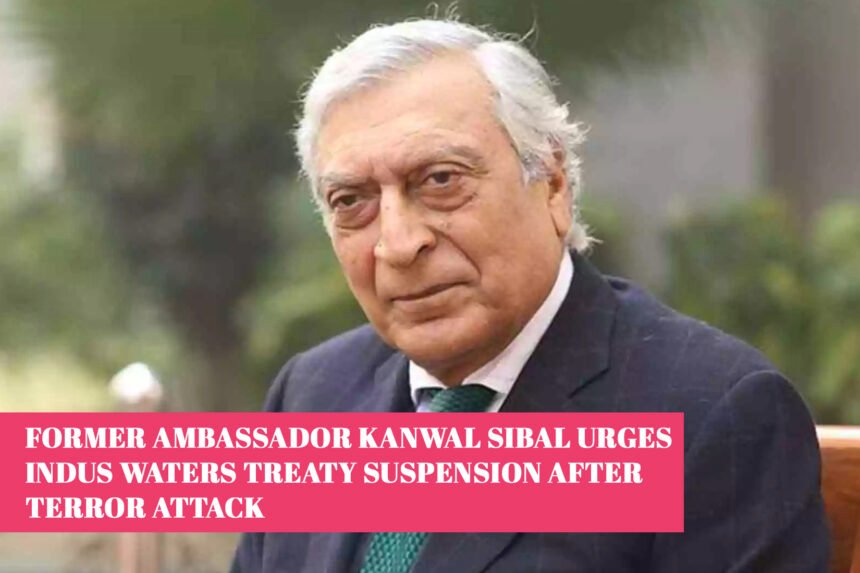Kanwal Sibal, who serves as the Chancellor of Jawaharlal Nehru University (JNU) and is a former Indian Ambassador to Russia, shared his thoughts on X (formerly Twitter) regarding the Indian government’s potential responses to the recent terror attack in Pahalgam, the Indus Water Treaty Suspension.

Sibal, who held the position of Foreign Secretary during the tenure of former Prime Minister Atal Bihari Vajpayee, expressed in his post that it is time for New Delhi to indefinitely suspend the Indus Waters Treaty (IWT) as a form of retaliation.
“It is essential to suspend the Indus Waters Treaty indefinitely as a significant reaction to the recent terrorist incident in Pahalgam, which was instigated by Pakistan. Our previous statements highlight that blood and water cannot peacefully coexist. Let’s act per our own declared stance. Such an action would be a calculated strategy,” the veteran diplomat commented.
But what prompts Sibal to advocate for the suspension of the IWT? The Indus Waters Treaty, which regulates the use of the waters from the Indus River and its five tributaries, was established between India and Pakistan in 1960.
Under this agreement, India is permitted to use the waters of the Ravi, Beas, and Sutlej rivers, while Pakistan is allocated the waters of the Indus, Jhelum, and Chenab rivers.
While the allocation seems equitable, the treaty heavily benefits Pakistan, which obtains around 80% of the total water flow from the Indus River System. Pakistan’s agricultural sector, particularly in Punjab and Sindh, relies heavily on the waters of the Indus, Jhelum, and Chenab.
Returning to Sibal’s comments, he noted that with the Trump administration in power, India finds itself in a favorable position regarding this issue with the United States, especially given that the attack took place while US Vice President JD Vance was in India.
He believes that this action would also convey a strong message to Bangladesh. “Trump and Vance hold firm views on Islamic extremism and terrorism. This move will send a positive signal to Bangladesh as well.”
At least 26 individuals, including two foreign nationals, have been killed in one of the most lethal terror attacks in Jammu and Kashmir since the 2019 Pulwama incident. The attackers are linked to the Resistance Front (TRF), a splinter group of the terrorist organization Lashkar-e-Taiba (LeT).
ALSO READ: Pahalgam Attack Aftermath: Economic Ramifications for Pakistan Due to Attari Closure










